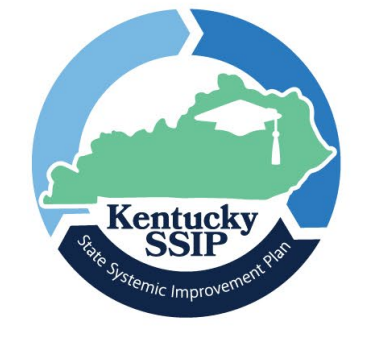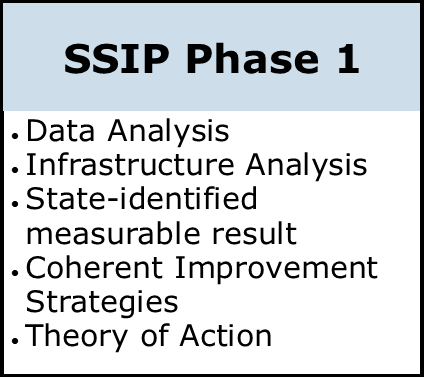
Implementation Resource
Active Implementation Hub (AIHUB) Learning modules, articles, and planning tools/templates to support implementation.
SSIP Documents
SSIP Theory of Action
SSIP Evaluation Plan
SSIP Phase I: Provides an overview of the analysis that led to the focus of the SSIP along with strategies that would be used to improve educational outcomes for SWD.

SSIP Phase II: Based on the analysis from Phase I, Phase II describes the plan to improve educational outcomes for SWD.
SSIP Phase III: Describes the implementation progress of the plan in Phase II. SSIP Phase III, Year 3: Describes the third year of implementation progress of the plan in Phase II.
SSIP Phase III, Year 4: Describes the fourth year of implementation progress of the plan in Phase II.
SSIP Phase III, Year 5: Describes the fifth year of implementation progress of the plan in Phase II
For SSIP reports beginning in FFY 2020, please see the Public Reporting of IDEA Part B Data webpage.